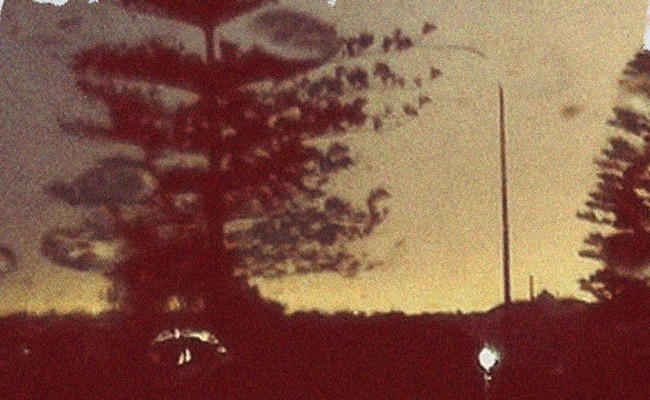 Unfinished Business: Women, Men, Work, Family
Unfinished Business: Women, Men, Work, Family
Anne-Marie Slaughter, Random House
Let’s get one thing out of the way before we start. Yes, Anne-Marie Slaughter’s Unfinished Business: Women, Men, Work, Family is written from a place of privilege: the author was director of policy planning at the US State Department before famously ‘stepping down’ to resume her role as a Professor at Princeton University in order to spend more time with her teenage sons. However, Slaughter has clearly taken the criticism that greeted her 2012 essay Why Women Still Can’t Have It All on board, and this book squarely addresses class and economic inequality. In exploring the difficulties women face in the workplace, Slaughter does not limit herself to the travails of high-flyers seeking a corner office but also explores the precarity and stress experienced by hotel housekeepers, factory workers, and employees of Whole Foods or Starbucks.
Her focus is on care: the vital (yet unpaid or low-paid) work primarily performed by women, and she deploys data, anecdote and argument to make the case for its importance and advocate policies such as paid family leave and the right to request part-time or flexible work. This book represents a mixture of communitarian and liberal feminist approaches, and the latter may well be the sugar coating that will make the former palatable in a US context, but the marriage is uneasy at times. It’s a little jarring, for instance, to read that on work-life balance ‘the Pentagon walks the walk’, and while tips about how to ‘manage up’ and admonitions to trust dads with child-rearing may be helpful to some readers, they are obviously both of limited usefulness and fairly well-worn at this stage. However, Slaughter’s overall emphasis is firmly, and rightly, on the structural. She concludes bluntly that ‘we have to exercise our collective political power to change the system’. Indeed.
 The Eighties: The Decade That Transformed Australia
The Eighties: The Decade That Transformed Australia
Frank Bongiorno, Black Inc.
Historian Frank Bongiorno’s The Eighties: The Decade That Transformed Australia is an engrossing work of narrative history which resists the triumphal stories that have been spun around the period 1980–1990. Bongiorno notes, for instance, that tales of the beneficial consequences of the ‘recession we had to have’ represent ‘the view from the summit rather than the suburbs’. The author also looks beyond the familiar tales of ‘men who imagined they were great’ and includes vignettes from the little people: women suffering sexual harassment in the workplace, an unemployed youth commenting that being stoned made life on the dole bearable, a mother sheltering in a kindergarten during the 1983 bushfires.
The Eighties is peppered with the kinds of facts that make the reader reach for a pencil to underline, but what is particularly enjoyable is its dry, gentle humour: Bongiorno observes variously that Bob Hawke’s colour blindness ‘possibly [lowered] any inhibitions he might have felt’ in wearing his famous jacket during the 1983 America’s Cup; Justice Lionel Murphy possessed ‘a nose of gargantuan proportions’; wine coolers provided ‘a sweet, cheap road to oblivion’. There is real bite beneath the smile, and deservedly so; Bongiorno comments that ‘[e]nthusiasm for a debate over Asian migration – a reasoned debate, naturally, in the best traditions of John Stuart Mill’s liberalism – flourished as never before among affluent, white opinion-makers; men, that is, who were unlikely to be called “slants” or “slopes” in the schoolyard or street, or to have their neighborhood daubed in graffiti telling them to leave the country’. The eighties were indeed a transformative decade, but there is much here that is familiar.
 Murder without Motive: The Killing of Rebecca Ryle
Murder without Motive: The Killing of Rebecca Ryle
Martin McKenzie-Murray, Scribe
Martin McKenzie-Murray’s frankly unputdownable Murder without Motive: The Killing of Rebecca Ryle also concerns itself with people swept up in events beyond their control. On the book’s cover is an accolade from philosopher Damon Young, who describes it as ‘true crime at its best’. However McKenzie-Murray is at pains to distance himself from this genre, stating that ‘most of our crime reporting is slim and trashy with no interest in deeper stories’. This is a book, then, that aspires to be different. It certainly differs, refreshingly, in refusing any sort of fascination with the murderer himself. The lyrical yet unsettling narrative is a mixture of reportage, memoir, exploration of teenage boyhood, polemic against ‘our glib attraction to criminality’ exemplified in shows like Underbelly, and – most compellingly – a portrait of an extraordinary family. Any of these threads could perhaps have been developed further and expanded into a separate or a longer volume; there is a slightly unfinished feel about the book and a sense of emptiness at its end. Perhaps, as the author suggests, the lack of finality is simply the point: the ‘pleasures of resolution’ do not exist for the Ryles and cannot be served up to the reader. Certainly Murder Without Motive will be part of important ongoing conversations about justice, toxic masculinity, victimhood and resilience.
Wild Man: The True Story of a Police Killing, Mental Illness and the Law
Alecia Simmonds, Affirm Press
Alecia Simmonds’ Wild Man: The True Story of a Police Killing, Mental Illness and the Law centres on a very different kind of violent death, spiralling outwards to explore broader issues surrounding drugs, mental illness and policing. The resulting book is thoughtful, compassionate and humane. The author’s display of her own subjectivity and self-interrogation is commendably honest but can feel excessive at times, as though the narrative is constantly (and unnecessarily) apologising for itself. Her musings also lead to some odd detours, as in the rather clunky observation that ‘Jesus and Evan shared the feeling of having been abandoned by their fathers’. However, Simmonds’ insights linger: she usefully queries assumptions about ‘the capacity for stories to create empathy’, and readers will be left with much to chew on about, among other things, ‘this strange moment in the history of madness’ when ‘the asylums are empty, and we’re yet to work out what goes in their place’.
 Finding Eliza: Power and Colonial Storytelling
Finding Eliza: Power and Colonial Storytelling
Larissa Behrendt, UQP
Eualeyai/Kamillaroi lawyer and writer Larissa Behrendt’s book Finding Eliza: Power and Colonial Storytelling explores the story of Eliza Fraser, a white woman ‘captured’ by the Butchulla people of K’gari (Fraser Island) in 1836. Behrendt circles around the received narrative, swooping in to ask questions about ‘motive’: what each successive teller has at stake and what details might have been left out. She also shows us the other side of the story, examining how Butchulla women might have viewed the encounter. Her major focus is on the stories that white Australia likes to tell itself about Indigenous people, and she skewers both positive and negative stereotypes alike.
Behrendt observes that tales of colonial interactions possess significant power: it has been argued that the story of Eliza formed an excuse for at least two nineteenth-century massacres of Indigenous people. More broadly, stories about ‘savages’ allowed writers to ‘transfer the violence of their own culture onto that of the Aborigines’. In particular, Behrendt observes that the popularity of tales about white women victims belied ‘the most common frontier abduction and captivity narrative – that of Aboriginal women being abducted and sexually abused by white men’. The latter chapters move swiftly between analysis of books such as Robinson Crusoe, discussion of the creation of fictional Aboriginal people by Elizabeth Durack and Marlo Morgan, and brief forays into native title law and, accordingly, feel somewhat rushed. However, if I were teaching students about the power of stories and the need to read against the grain, I would grasp this book with both hands.
 Best Australian Essays 2015
Best Australian Essays 2015
Edited by Geordie Williamson, Black Inc.
In a piece for Griffith Review’s recent edition on ‘Fixing the System’, Gabrielle Carey muses that Australia does not have a strong essayist tradition, and suggests that our ‘zealous commitment to egalitarianism’ might play a role, noting that ‘[i]f all people and opinions are equal, then there is no room for giving authority to a person or allowing them to lead the conversation’. This is an interesting theory, but I’m not sure about it. Australian attitudes to authority are arguably complex rather than being oppositional. In any event, readers picking up Best Australian Essays 2015 (edited by Geordie Williamson) will not want for spiky, authoritative prose. There is polemic here from Guy Rundle on the Charlie Hebdo massacre and the state of the global left and right, an angry lament from Noel Pearson that for Aboriginal people ‘the show has gone backwards’ since the demise of ATSIC, and a short but fiery piece from Alison Croggon on male violence and power (first published in Overland).
The essays also venture confidently beyond our shores, with standout pieces including Nadia Wheatley on Belsen and Matthew Lamb on a meeting between George Orwell and Albert Camus that never took place in the Paris of 1945. What is particularly appealing, though, are the moments where a writer shares his or her own ambivalence. Tim Winton posits in ‘Havoc: A Life in Accidents’ that certainty is an illusion, for ‘[e]ach of us wades in the swamp of everyone else’s actions and intentions’. As if to acknowledge this soggy terrain, the essays in this volume make room for uncertainty and vulnerability. Anwen Crawford’s persuasive argument that ‘The World Needs Female Rock Critics’ begins disarmingly: ‘Don’t tell anyone, but I don’t own any albums by the Rolling Stones’. In Maria Tumarkin’s incisive ‘No Dogs, No Fruit, No Firearms, No Professors’, she writes at one point: ‘There is at least a 50 per cent chance I might be wrong. Fine. I’d rather be wrong than scrambling to cover my arse.’ Some of these essays will be of more interest than others according to a reader’s own inclination, but overall this volume is a deeply satisfying read, with not a bare arse in sight.
—




